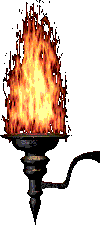




Most Esteemed Reader,
You are about to enter into a small section of a much larger castle filled with the memories of those who have explored it before you. The first sememster of university leads to a great deal of self-reflection for many a student, our protagonist included. Friends and family frequently asked him how his life in college compared to his life in high school. The castle is partially a reflection of this introspective view taking physical form. Sometimes, the castle is a cold and drafty place, representing bitter nostalgia and a longing for a past that can never be returned to. Other times, the castle becomes a warm and inviting place, representing happy memories and being able to look forward to the future. It often depends on how the visitor views their own past. Hopefully, Mr. Zmed's memories won't give us any trouble.
I should note that I use the term "castle" loosely here. As you may notice, this is not a castle, per se, but a website. The Dreamcastle takes many forms. In this case, it has chosen to look like a website based on the early 2000s Internet aesthetic. Mr. Zmed along with myself find the early days of the Internet a fascinating subject. Much like the early denizens of the Internet, Mr. Zmed was exploring a new world in the form of his university.
One more theme present in this ePortfolio is that of a storybook. Each paper has its own chapter. Like any book, the story of this class has a beginning, middle, and end. The beginning introduces the characters, setting, and subject, like how in this class the beginning introduced many new concepts that would be used throughout the course. The middle can seem difficult, like how the research paper at the end of this class seemed like an impossible task at first. The end of the story often has the characters display their mastery of their abilities to surmount the final challenge, similar to how the end of this class required the student to display mastery over the course. Chapters 1 and 2 can be seen as the beginning, 3 and 4 as the middle, and 5 and 6 as the end.
A rather relevant part of any college course is the course outcomes. Let's go over them, shall we?
In this ePortfolio, The included documents will be as following: The first two Reading Responses, the Genre Analysis and Intertextuality paper, the research proposal, the annotated bibliography, and the research paper. If I am understanding the young student's notes correctly, he believes the Reading Responses are important because they introduced him to several concepts in this class that would be very relevant for the research paper. The Reading Responses were also relevant to helping him understand the Course Outcomes of Generating Inquiry, Information Literacy, Research Genre Production, and Contributing Knowledge.
The first Reading Response taught him about the concepts of rhetoric, rhetorical analysis, and research communities. Having a better understanding of the idea of rhetoric provided a useful foundation for this class. Being encouraged to look for how an author’s rhetorical choices affect their message helped him understand the concept of Generating Inquiry.
The second Reading Response taught him about the concepts of genres, intertextuality, and discourse communities. Understanding intertextuality and discourse communities in turn led to him knowing how Contributing Knowledge worked by basing new work off of previous works and allowing it to fit within an established discourse community’s guidelines. Studying the concept of genres and discourse communities following into being able to follow the course outcome of Research Genre Production.
The Genre Analysis and Intertextuality paper built on the ideas of the second Reading Response and made them stronger. Being able to thoroughly analyze a research paper especially helped him understand Information Literacy. Understanding what goes into a research paper was invaluable for working on his own research paper.
His Research Proposal and Annotated Bibliography gave him the opportunity to learn about Revision. His initial research proposal needed some work and he revised it in order to better plan his research process. The required peer review also helped with this Course Outcome. It allowed him to see how another one of his classmates was handling their research. After receiving his own peer-reviews multiple times throughout the course, he was able to learn how to apply and balance recommendations with his own desires for essays.
From what I gather, the young student's writing style went thusly: For every few sentences he wrote, he would review the rubric for the assignment to make sure every sentence was invaluable for the work as a whole. Whether or not he was consistent in this is another thing, but his hope was that each sentence he wrote was completely necessary for the essay and that his assignment would not be as cohesive without any one sentence. As a result of his diligence, large-scale rewrites were often unnecessary. As such, many of the previous drafts of some of the writings here do not feature many obvious revisions. Sections of the castle that contain these drafts will explain the edits in more detail.
Yours mysteriously,
Majisto
